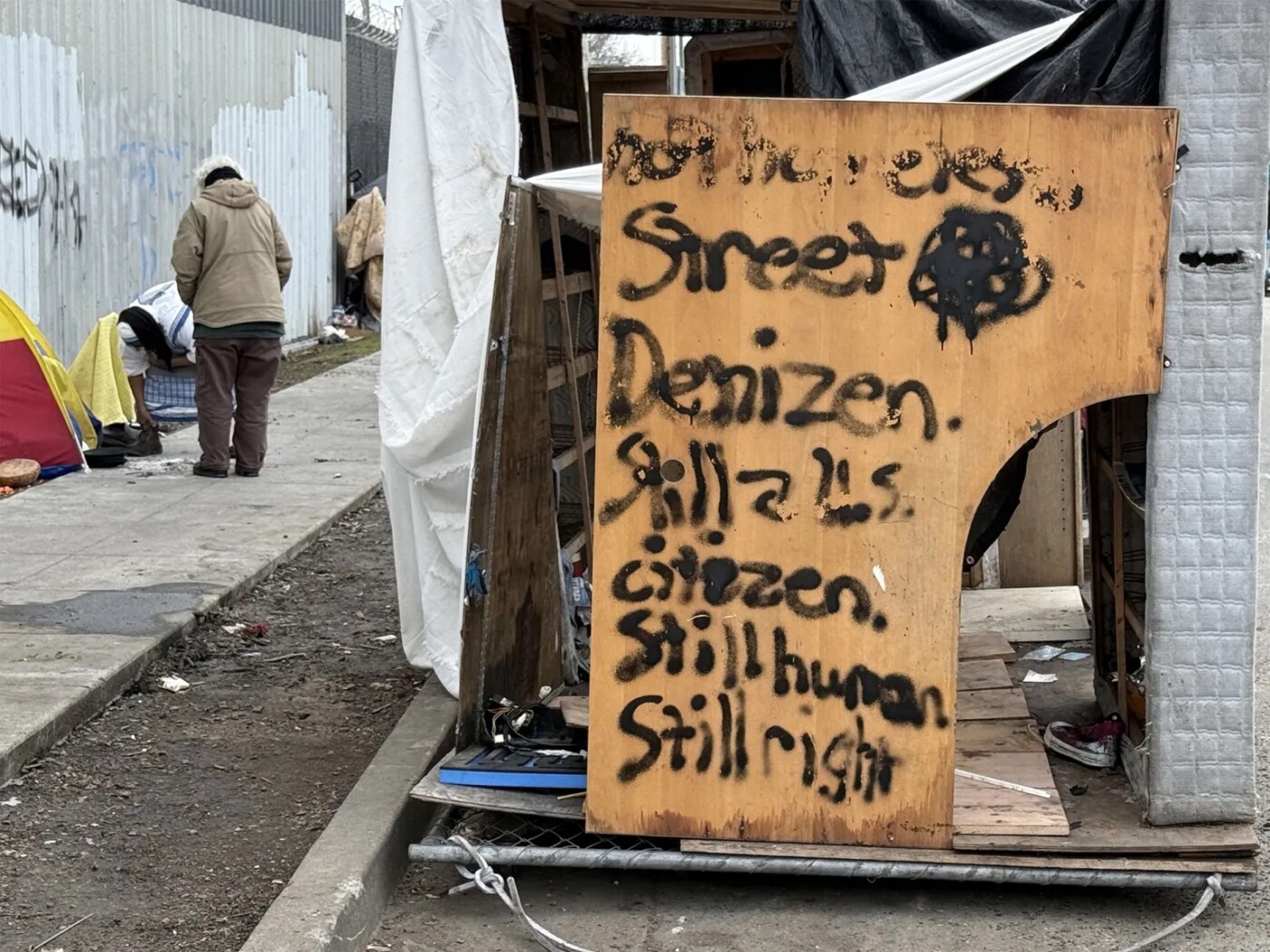LAST JUNE, THE U.S. Supreme Court ruled that it is not unconstitutional “cruel and unusual” punishment for a city to enforce “anti-camping” laws against people who are living on city streets, even when there is no available shelter.
But while that case settled an important issue it did not end litigation against cities brought by people experiencing homelessness, as the city of Berkeley knows.
The Berkeley Homeless Union, a membership organization made up of people who are or have been homeless, sued Monday in federal court in Oakland to enjoin Berkeley from sweeping an encampment in the several block area around Eighth and Harrison streets.
There is history here. In September, a few months after the Supreme Court decision, the famously liberal Berkeley passed a resolution that said it would not sweep encampments unless it was able to offer shelter to the displaced people. However, that general proposition was subject to several exceptions.
Among the exceptions were encampments that posed a health or safety hazard.
On Jan. 7 of this year, the city posted notice that said officials had visited the site and found “significant health and safety hazards.” The notice identified “loose and scattered syringes,” “rodent harborage conditions” and “unmitigated human and animal waste.”
The notice directed that the nuisance conditions be abated by Feb. 10, or the city would do so by removing all of the property remaining at the site. The notice added that after abatement, the city intended to declare the area a “no-lodging area” so the encampment could not return.
The notice made clear that anyone who did not comply with the order would be subject to citation or arrest and their personal property subject to immediate removal.

A group of the encampment residents filed an administrative appeal and undertook a major cleanup of the site. According to Yesica Prado, a representative and member of the union, people living in the encampment spent two weeks “just cleaning up nonstop” and ultimately removed “more than 3,000 pounds” of debris from the site.
The hearing officer said it wasn’t enough and on Jan. 31, the city posted a second notice saying that it intended to proceed.
Alleging a ‘state-created danger’
The union’s lawsuit raises two key claims. First, it argues that the sweep constitutes a “state-created danger” in violation of the due process clause of the 14th Amendment. Second, it asserts that of the 47 people in the encampment, 31 suffer disabilities, and as a “reasonable accommodation” the city should allow them to remain where they are.
On the state-created danger theory, the plaintiffs point out that huge storms are expected during the next few days with freezing temperatures, high winds and flooding, and the plaintiffs have no safe place to go. They allege that the displacement will sever connection with their support community they rely on for food, health care and medications. They believe that sweeping the site will endanger their lives.

On the second theory, Prado says that so far, 16 of 31 disabled residents have requested the city to provide a “reasonable accommodation” that would let them remain at the site until an Americans with Disabilities Act-compliant alternative becomes available. According to Prado, the city’s disability officer has rejected all of the requests.
The union has requested the court to issue a temporary restraining order to preserve the status quo pending a full hearing.
At present, no hearing has been scheduled.
While the uncertainty is very stressful, Prado is focused on the court case. She is one of the founders of the union and is very involved in pressing the lawsuit.
She said, “I’m just praying that things will be OK. I have not been able to sleep the last few days with this.”
Prado, 30, has an unusual backstory, one that illustrates the wide range of people who can be experiencing homelessness.
Prado is currently living in her recreational vehicle on the side of Eighth Street near the intersection with Harrison.
She attended journalism school at the University of California, Berkeley, graduating with a master’s degree in 2018. Along the way she faced the hard choice of paying rent or tuition and chose the latter. That meant that she gave up her apartment and began living in a RV.
She has been living in the RV ever since, and over the last seven years she has experienced first-hand the life of one who is experiencing homelessness.
But despite her circumstances, Prado has been working as a journalist since graduating. Her area?
Homelessness.
She says, “There is so much to write about.”
She wants to know who is accountable for making the decisions that have created the conditions she sees out of her door.
She is also trying to investigate where the resources intended for the homeless are going, “because,” she says, “I can tell you that they are not landing here on the street.”
The city of Berkeley did not immediately respond to a request for comment.
The post Homeless advocacy group sues Berkeley to prevent city from sweeping encampments appeared first on Local News Matters.
